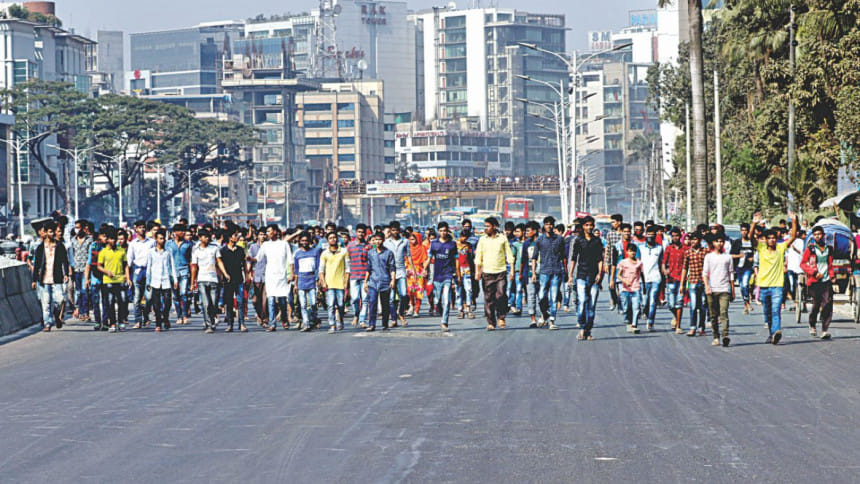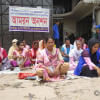Disparities in wages to be solved

Amid continued demonstrations by garment workers over alleged disparity in their new wage structure, the government yesterday assured the workers of addressing the discrimination within a month.
A 10-member committee has been formed to review the wage structure.
The factory owners have also been instructed to pay the wages arrears next month, if there is any, with that of January.
The decisions came at an emergency meeting of the crisis management core committee for the garment sector. The meeting, held at the labour department in the city's Motijheel, was called to find out the reasons for the ongoing labour protests and their solutions.
Meanwhile, garment workers took to the streets in and outside the capital for the third consecutive day yesterday.
Workers said the wages in the seventh grade increased by Tk 2,700 while the minimum wage was hiked to Tk 8,000 from Tk 5,300. But the wages in other grades was not increased at the same rate, they alleged.
They further claimed many factories didn't implement five percent annual increment on the workers' basic wages in the last few years.
At the emergency meeting yesterday, a good number of trade union leaders from the garment sector, factory owners and top officials of the government and law enforcement agencies were present.
Shafiul Islam Mohiuddin, president of Federation of Bangladesh Chambers of Commerce and Industry, and Siddiqur Rahman, president of Bangladesh Garment Manufacturers and Exporters Association, also attended the meeting.
Briefing reporters after the meeting, newly appointed Commerce Minister Tipu Munshi said, “The union leaders said there are disparities in the latest wage structure that was published in a gazette in November last year. However, the factory owners said there was no discrimination.”
The committee, composed of five representatives each from trade unions and factory owners, would review the wage structure thoroughly to examine whether there was any disparity in different grades, he added.
The body would also hold meetings with the secretaries to the ministries of commerce, and labour and employment and top officials of the law enforcement agencies to discuss its findings, Tipu said.
The minister warned that the government would not tolerate any kind of chaos in the garment sector by any vested quarter.
He expressed optimism that the problem would be resolved within a month.
Speaking at the briefing, State Minister for Labour and Employment Monnujan Sufian echoed the views of Tipu.
“You [the factory owners] have to adjust the wage structure to remove disparities in different pay grades,” she said.
A worker's wage is never reduced with the implementation of a new wage structure, she said, adding that basic and gross wages of any worker would not be reduced.
Mahbubur Rahman Ismail, president of Bangladesh Textile-Garment Workers' Federation, said the committee would recommend addressing disparities if it found any.
He said there were disparities in the first, third and fourth grades of the new wage structure.
Amirul Haque Amin, president of National Garment Workers Federation, said the workers should join work from today as all the stakeholders of the crisis management committee agreed to resolve the crisis through holding talks.

 For all latest news, follow The Daily Star's Google News channel.
For all latest news, follow The Daily Star's Google News channel. 








Comments